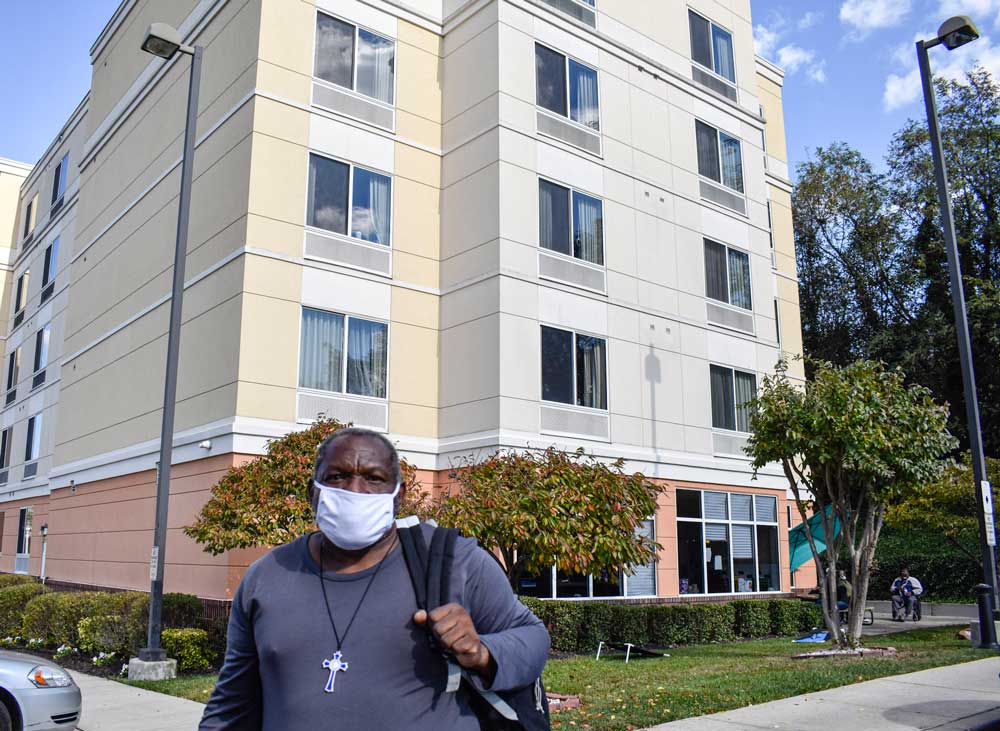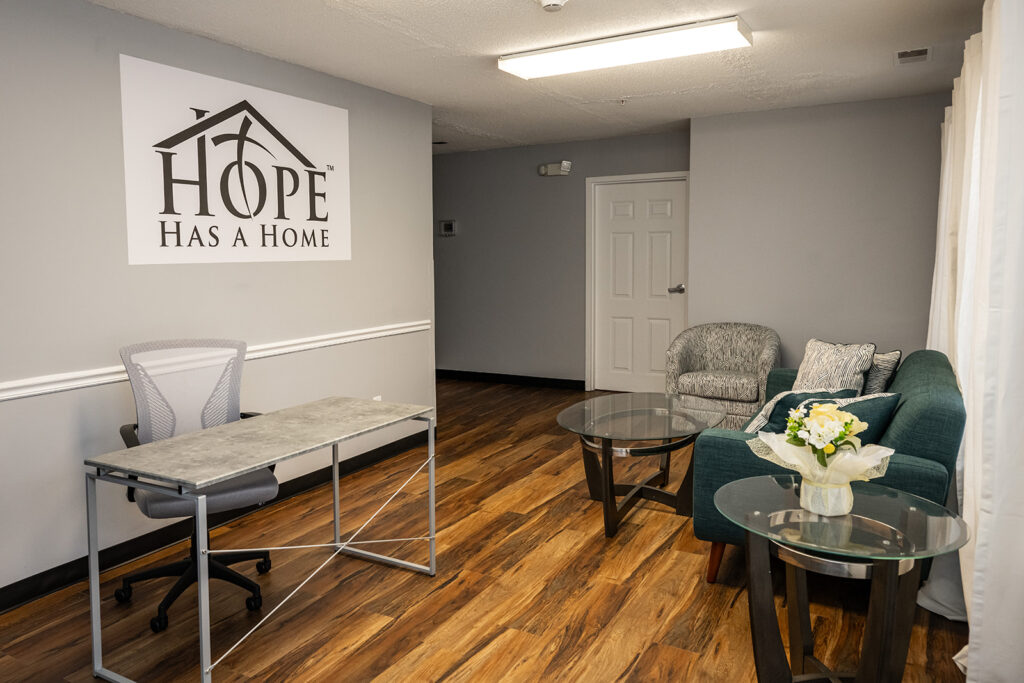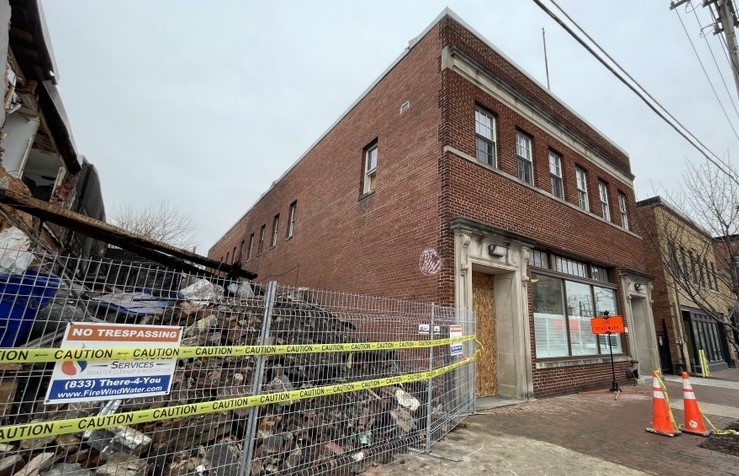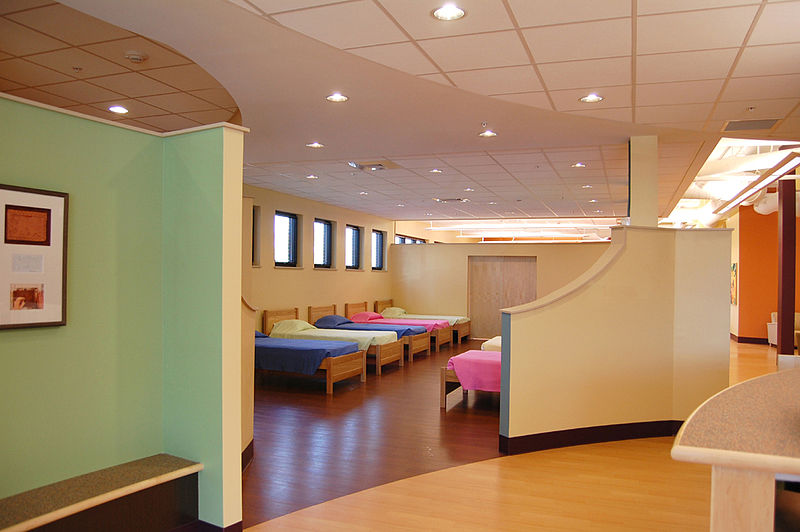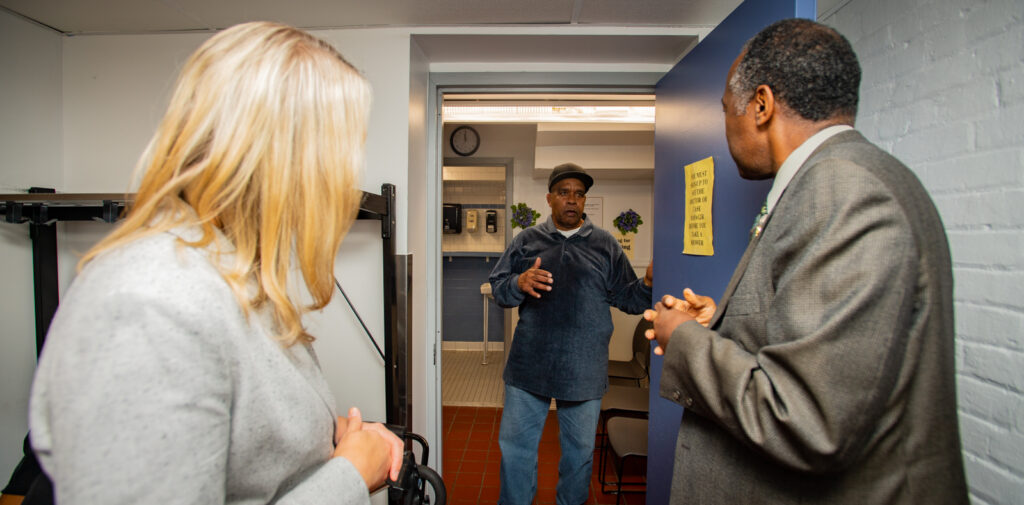In November, President Biden extended Federal Emergency Management Agency (FEMA) funding until Apr. 1 to combat COVID-19. The extension allows D.C.’s Pandemic Emergency Program for Medically Vulnerable Individuals (PEP-V) to continue throughout March.
PEP-V enables people at higher risk of being severely affected by COVID-19 to shelter in hotel rooms instead of traditional congregate facilities. Residents may stay in the hotel until they are matched with housing assistance. In April the city exhausted its permanent supportive housing vouchers and told PEP-V residents about this grim outlook. But more funds became available, and the program continued to operate. The D.C. Council then implemented a new tax, starting in October, that will provide dedicated funding for housing vouchers and more in the years to come.
As of Dec. 12, 546 people reside at a PEP-V site, according to the D.C. Department of Human Services. When the city added the fourth hotel in April, DHS capped the waiting list, which was already nearly as large as the program’s capacity. Since late 2020, most residents have shared a room to maximize space in the program.
As of December 15, 441 people had moved from the medically vulnerable hotels to permanent housing since the program began, according to a website published by DHS. Another 278 people in the hotels had been matched to “permanent housing resources” at the time, such as case management or help to obtain an ID or processing other paperwork.
The District does not have a precise end date for the program. On average, it costs $6.9 million per month to run five sites, one for people who test positive for COVID-19 to isolate and quarantine (ISAQ) in addition to four PEP-V hotels, DHS said in an email. Records Street Sense Media obtained through a Freedom of Information Act request earlier this year showed that all but approximately 4% of the expenses for the PEP-V and ISAQ hotels can be reimbursed through FEMA.
“The extension of FEMA funds for non-congregate shelter allows us to maintain the program beyond the initial plans for demobilization Sept. 30,” the spokesperson for DHS wrote.
When the pandemic emerged in the United States, Marcus McCall was in prison. Shortly after being released, he lived in the tunnel at D and 2nd Streets NW.
As the city prepared for President Biden’s inauguration, McCall recalls the government carrying out an emergency “cleanup” at D and 2nd Streets. That same day, DHS started talking to those unhoused residents affected about an opportunity to sign up for the PEP-V program.
“DHS came out, and they just rounded up and collected some people. I guess they thought they could help, but some people don’t always want help,” McCall said.
At the beginning of the program, McCall remembers the program rules as being much more relaxed. He stayed out, despite a curfew, for the first couple of weekends. But he says the team did not check on him or his room.
In PEP-V, residents must return to the hotel before 7 p.m. McCall said this curfew made it challenging to complete his work as a newspaper vendor and writer for Street Sense Media. Special arrangements were eventually made to allow him to work past the curfew hour, but he said that was a long process. McCall needed his case manager from Street Sense Media to confirm that he was working past 7 p.m.
McCall says the PEP-V staff started doing room checks in October because they witnessed people overdosing in the hotel rooms. McCall thinks some problems with the program could have been avoided by having more rules in place.
McCall praised the medical staff but said the other employees and management are not always readily available. He said some do not seem fully trained to work in this setting.
“Someone there might have no experience of even filling out an application for social security because their mom did it for them, or they tell you, ‘Oh, I don’t know, dude, you got to go online,’” McCall said.
Another current PEP-V resident, who wished to remain anonymous for fear of retaliation, said the wellness check-ups are nearly every other hour. Still, he has no problem with the staff doing their jobs. He does have an issue with the quality of the hotel’s food.
“I’ve had hamburgers you could not cut with a knife,” the unnamed resident said. He also described pancakes he could not tear through with his teeth and “chicken salad” made with hardly any chicken.
Most residents in PEP-V need medical attention for the other health concerns that qualified them for the program. The unnamed resident said the medical team’s care was excellent but that residents could often only see the doctor for 15 minutes on two specific days of the week due to the high number of patients.
“You can only get sick on Tuesday or Thursday,” he joked.
Unity Health Care is one service provider that helps take care of patients in PEP-V. The nonprofit’s medical director for Homeless Outreach Services at Unity Healthcare, Catherine Crosland, said they visit three of the four hotels twice a week. They provide medical care in onsite clinics for those who choose to be seen.
The program no longer requires that people in PEP-V be regularly seen by medical staff. Suppose a resident is connected to a provider outside Unity. In that case, the facilitator adjusts to the previous medical provider so the residents can continue their care.
At the Hotel Arboretum, where just over 100 lived at the beginning of the month, roughly 40 to 50 people need medical attention.
“For these individuals, we have nurses on site who assist with things like medication administration,” Crosland said. “Certified nursing assistants can assist individuals with activities of daily living such as bathing.”
She described the program’s current state as being a beneficial place for its residents. She told one of her patients about the program, a 70-year-old man who uses a wheelchair because of a previous stroke, non-healing foot ulcers, and emphysema. He was one of the first people to be signed on to PEP-V.
“Within one week of being at the hotel, his swelling had improved, his foot ulcers had nearly healed, and his breathing was better. His medical care had not changed. What had changed was his housing,” Crosland said.
Being placed into housing helped Crosland’s patient improve his health because he had access to such necessities as a shower. Including the ongoing health benefits, the PEP-V program provides residents with time to match with permanent housing.
Al Richardson, 61, spent more than 20 years on the streets. Most recently, he stayed at the New Jersey Ave. and O Street encampment for a little over a month. While living there, he continued to work with his caseworkers from Pathway to Housing D.C. Since Richardson is a veteran, his application to get assistance was moved forward. Today, he is staying at a PEP-V hotel.
“I get along with everybody, and everybody gets along with me. It’s quiet, peaceful, and it’s a change of scenery, and I think it’s the beginning of a new life for me,” Richardson said.
As Richardson stays at the hotel, he waits patiently to see when he will be matched to housing. Richardson’s mental health has improved now that he is off the streets. He said he now has the chance to start his life over.
The stability of a room in PEP-V is also helping McCall focus on himself. Since he was 18 years old, McCall lived on the streets. He said that the lack of access to education or a support system helped push him to become homeless.
“I am doing wellness checks on myself like going to doctor’s appointments. I’m trying to get back into school to go into a GED program. I’m also looking for real part-time work,” McCall said.
Despite the program’s supportive model, Crosland worries about the time limit attached to the program. D.C. only launched PEP-V because federal reimbursement for the majority of its costs was made available. The program has prepared to close several times when the end of funding loomed, only to be extended like it was last month.
“It has been a wonderful resource to be able to offer people experiencing homelessness during this pandemic,” Crosland said. “But the funding is possible because of federal funds that support the program, which will end when the pandemic ends.”
There has been a push by D.C. council members about purchasing these hotels to turn them into permanent supportive housing units. In February 2021, Ward 1 councilmember Brianna Nadeau called on the mayor to buy these hotels as a priority for the Fiscal Year 2022 Budget. When the Budget Support Act was passed on Aug. 3, $50 million was included for purchasing more buildings to be turned into permanent housing, but not specifically hotels.
Nadeau’s office did not answer questions before Street Sense went to press about whether purchasing the hotels is still a priority next year.
